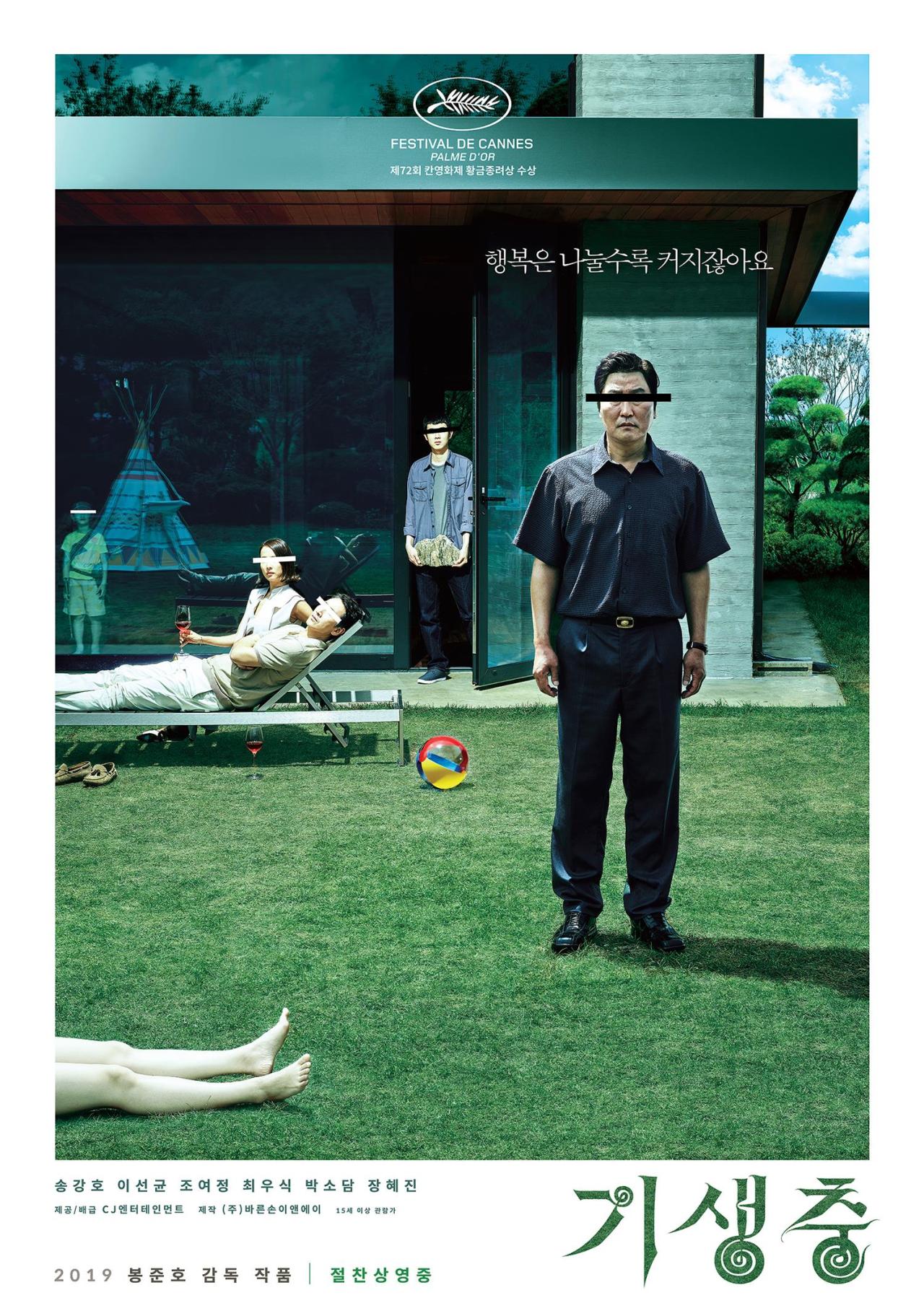Cannes-winning 'Parasite' tops 10 m admissions in S. Korea
By YonhapPublished : July 22, 2019 - 15:30
"Parasite," the winner of the Palme d'Or at this year's Cannes Film Festival, has surpassed 10 million admissions in local theaters, data showed Monday.
The comedy-thriller film by Bong Joon-ho drew 10,000,249 moviegoers as of Sunday, the 53rd day of its run, according to the data from the Korean Film Council.
It became the 26th film that reached the 10 million milestone in ticket sales in South Korea. This year alone, four films have achieved the feat: "Extreme Job," "Avengers: Endgame," "Aladdin" and "Parasite."

It is the filmmaker's second flick surpassing the 10 million threshold, with the first being "The Host" in 2006.
"Parasite", a crossover between a comedy and thriller, deals with the striking economic class division between two families in a dark but hilarious manner.
In May, the 7th feature from Bong became the first Korean film ever to win the top prize at Cannes.
The film's passing of the 10-million mark proved that it has both critical and commercial value. No Cannes-awarded South Korean films have hit the milestone before.
In South Korea, average budget films seen by 5 million people or more are considered moderate successes and films that sell 10 million tickets are huge successes.
Lee Chang-dong's "Secret Sunshine," which earned its female lead Jeon Do-yeon the Cannes best actress award in 2007, attracted only 1.6 million viewers. Park Chan-wook's vampire horror-thriller "Thirst," winner of the 2009 jury prize, logged only 2.2 million, while Lee's "Poetry," which won best screenplay in 2010, drew only about 220,000.
Film critics say "Parasite" seems to have broken the prejudice that movies that win prestigious prizes at international film festivals like Cannes are unsavory and boring.
"Parasite is a film that makes its viewers feel uncomfortable," Jeon Chan-il, a local film critic, said. "It's meaningful not just for Korean cinema but for the global film industry that an uncomfortable film that goes against the traditional grammar of commercial films was seen by more than 10 million people." (Yonhap)












![[Today’s K-pop] BTS pop-up event to come to Seoul](http://res.heraldm.com/phpwas/restmb_idxmake.php?idx=644&simg=/content/image/2024/04/17/20240417050734_0.jpg&u=)





![[KH Explains] Hyundai's full hybrid edge to pay off amid slow transition to pure EVs](http://res.heraldm.com/phpwas/restmb_idxmake.php?idx=652&simg=/content/image/2024/04/18/20240418050645_0.jpg&u=20240418181020)

![[Today’s K-pop] Zico drops snippet of collaboration with Jennie](http://res.heraldm.com/phpwas/restmb_idxmake.php?idx=642&simg=/content/image/2024/04/18/20240418050702_0.jpg&u=)